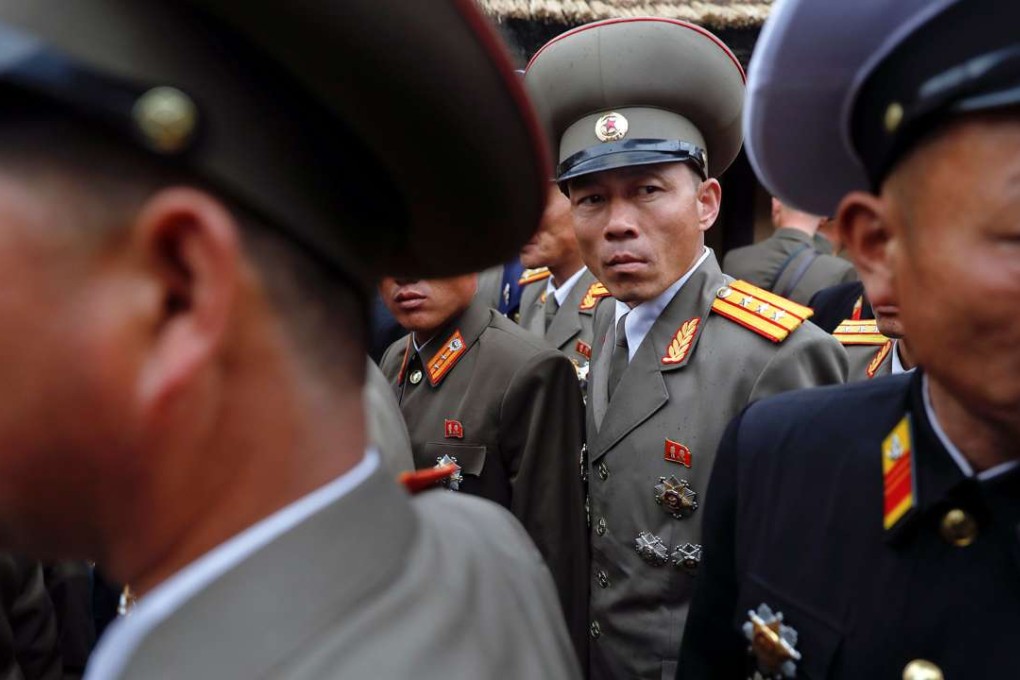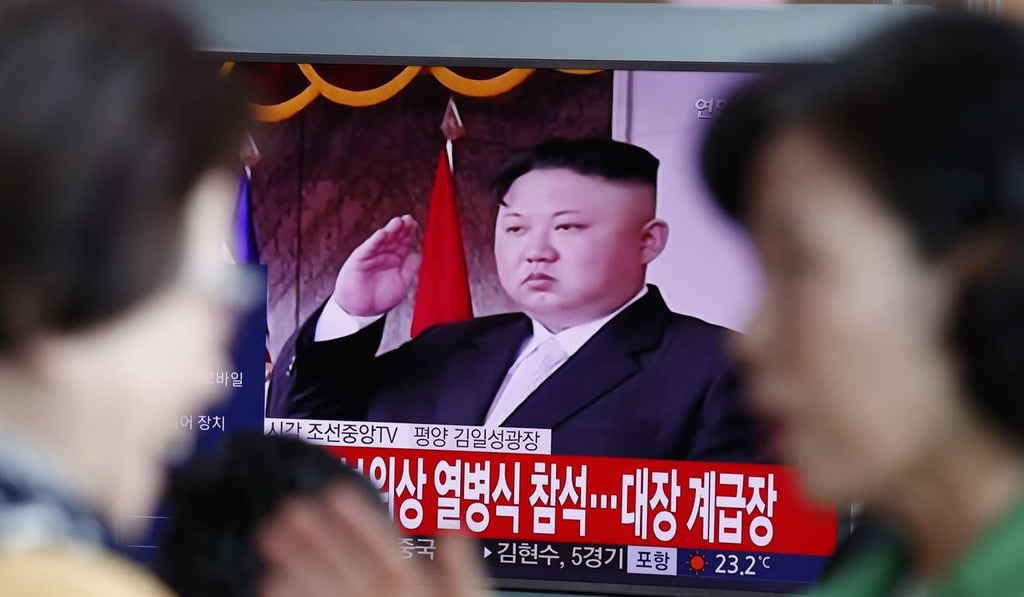‘Anything goes’ Trump Doctrine unsettles not just US foes, but also its allies
Ehsan Ahrari says the strikes on Syria and sabre-rattling in Korean peninsula underline the seemingly impulsive nature of Trump’s foreign policies, which worries its allies and greatly increases the risk of its intent being misconstrued

In this instance, writes Baker, Trump “demonstrated a highly improvisational and situational approach that could inject a risky unpredictability into relations with potential antagonists, but he also opened the door to a more traditional American engagement with the world that eases allies’ fears”.
Why does the US goad Kim’s paranoia with war games and aircraft carrier?
Why South Koreans are unmoved even though all signs point to war

North Korea celebrates founder’s birthday amid speculation about new nuclear test
The US seems to have transformed itself into a reactive and even a mercurial superpower. That impulsiveness is likely to make the world an unsafe and unstable place
Since North Korea does not have a slew of experts on US foreign policy to fully understand or to interpret Trump’s actions, chances are that it might misconstrue that ostensible sabre-rattling and overreact. Then what? We may then be facing a major military conflict between the United States and North Korea, a conflict in which China may not be a neutral party. That is just one possible consequence of the current Trump Doctrine.
President Trump’s seemingly quick reaction to Basher al-Assad’s alleged use of chemical weapons also underscores the likelihood that, under his presidency, the United States will become an impetuous superpower: reacting to events without a strategy or a detailed post-conflict plan. That type of feeling does not make anyone – especially America’s allies in the Middle East and East Asia – either secure or confident.
Another related ironic and uncomfortable variable is that, during the Obama presidency, the United States became an overly cautious superpower. One palpable result of that was the emergence of Russia as a major player in the Middle East. Under Trump, the United States seems to have made an about-face by quickly taking limited military action against Syria.
Trump’s missiles hold a message for China and Russia, but can the US stay the distance?
Consequently, it seems to have transformed itself into a reactive and even a mercurial superpower. That impulsiveness is likely to make the world an unsafe and unstable place, simply because no one knows how Russia and China will respond to the next crisis involving their own strategic interests.